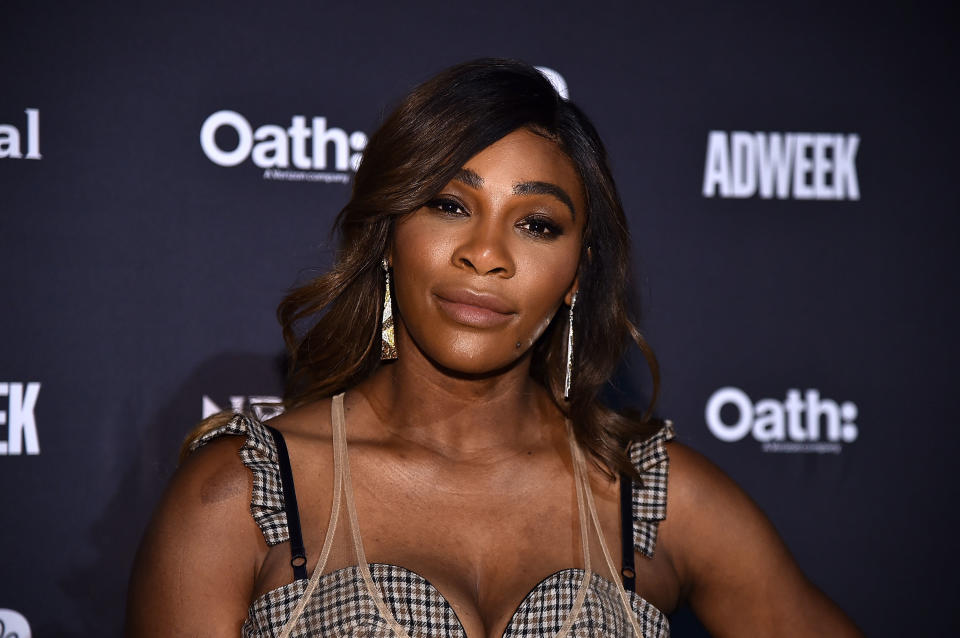Serena Williams doesn't 'really remember' U.S. Open quarrel with chair umpire
Serena Williams is speaking out about her September confrontation at the U.S. Open with chair umpire Carlos Ramos.
Williams, who holds 23 Grand Slam titles, got into it with Ramos after he gave her a warning for a “coaching” code violation. He believed Williams’s coach, Patrick Mouratoglou, was signaling to the tennis star from the stands, which is against the rules. She was given a second code violation for smashing her racket and a third for verbal abuse against the chair umpire, costing Williams a game. (Williams called him a “thief” for stealing a point from her in a championship match.)
“I’ve had a lot of things happen to me at the U.S. Open. I think about three or four different things. Especially in the later rounds,” she told GQ after being named the magazine’s “Woman” of the Year. The interviewer noted that Williams had a “remorseful” tone when speaking about the incident.

“I think a person can be a little bit more sensitive to anything in that moment,” she explained. “You know, it becomes a trigger moment. When you go through a really extreme ordeal not once, not twice, not three times, it becomes a trigger moment.”
Williams added, “I don’t really remember how it went, to be honest.” She deleted social media apps from her phone and stayed away from reading any headlines about the incident. “I’ve been purposely not thinking about it. I don’t watch TV at all. I try to keep myself in a bubble as much as I can. I just don’t want to be involved in other people’s opinions. Let them live how they want to feel.”
However, Williams wanted to make it clear that being hit with a coaching code violation is not typical.
“That was where a lot of people don’t understand,” Williams said, explaining that if an umpire notices a player’s coach making suspicious movements, usually he’ll simply say something to the player, and that’s the end of it.
“That’s where I was coming from,” she continued. “Like, usually you talk to me, tell me that something’s happening, and I’ll tell my box, like, whatever you’re doing, don’t. First, I can’t see you — I’m clear on the other side of the court. Second, don’t do it. We’re here to win or to lose with dignity, and that’s how I’ve always done my career.”
During their verbal disagreement, Williams could be heard telling the umpire, “There are men out here that do a lot worse, but because I’m a woman, because I’m a woman, you’re going to take this away from me?” Suddenly, she found herself at the center of a wider conversation taking place in the #MeToo era about power and gender and what happens to a woman when she expresses anger.
“Especially a black woman,” Williams noted. “You do research on how black women, you know, in the workforce are… There’s literally papers about it, how black women are treated if they’re angry, as opposed to white women, white men, black men. It is bottom of the bottom of the totem pole.”
People were comparing her reaction to the emotions displayed by Judge Brett Kavanaugh during his quest to be confirmed to the U.S. Supreme Court.
“Kavanaugh’s a white man,” Serena replied when asked about anger and who’s allowed to express it. “I’m a black woman. His limit is higher. My limit is way lower. And that’s where we stand right now in this world. And it’s a fact. It is literally a fact. If you don’t believe anything I say, just look at those two examples.”
Williams said her approach is that you “don’t accept it,” though. “You talk out about it like I have. You make it better for the next generation.”
Read more from Yahoo Entertainment:


